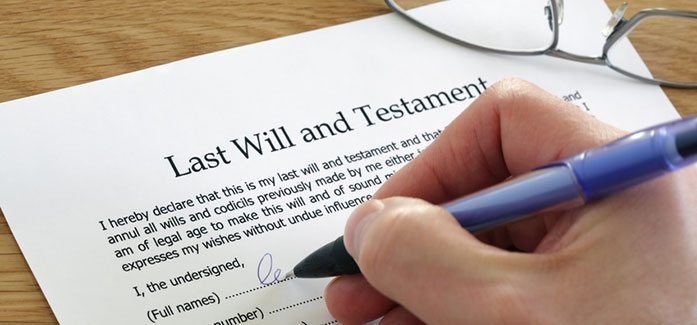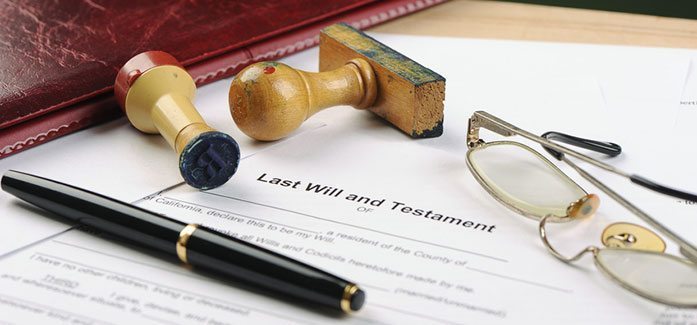Wills

Aug 12, 2016
Some disabled individuals may now obtain tax-advantaged accounts, similar to 529 college savings accounts, to pay for expenses related to disability. These accounts result from the Achieving a Better Life Experience (ABLE) Act passed by Congress in 2014. Allowable...

May 6, 2016
Who can file a will contest under Pennsylvania law? Quick answer: only someone who would benefit financially from having the will declared invalid. Suppose John Doe signs his first and only Last Will and Testament on his death bed. It was written by his youngest...

Dec 31, 2015
If you are an adult with some assets and a loved one or two, you should have a will. At a minimum, your last will and testament expresses your wishes about how your assets will be passed on to your survivors. But it can also serve as the vehicle for other important...

Dec 12, 2015
Estate planning documents don’t expire with time like a gallon of milk, but they do become obsolete when circumstances change. Having up-to-date documents is essential, but how do you know when it’s time to make a change? Here are some of the top reasons to...
Sep 16, 2015
When you die, will your spouse grieve until the day he or she dies? Or will someone else come along and become the new spouse? Does your will address this possibility? In this age of longer lifespans, chances are good that another husband or wife may replace you after...

May 31, 2015
The most common reason for contesting a will is an allegation of undue influence – that is, that someone close to the person creating a will (called the “testator”) gained a substantial benefit by persuading the testator to favor that person, at a time when the...







